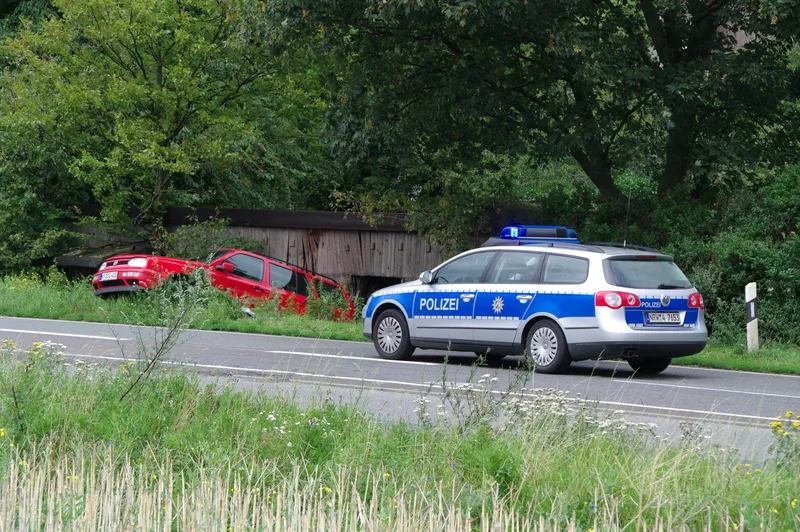The 2015 road safety statistics published by the European Commission confirm that European roads remain the safest in the world despite a recent slowdown in reducing road fatalities. 26, 000 people lost their lives on EU roads last year, 5, 500 fewer than in 2010. There is however no improvement at EU level compared to 2014. In addition, the Commission estimates that 135, 000 people were seriously injured on EU roads. The social cost (rehabilitation, healthcare, material damages, etc.) of road fatalities an
April 5, 2016
Read time: 2 mins
The 2015 road safety statistics published by the European Commission confirm that European roads remain the safest in the world despite a recent slowdown in reducing road fatalities. 26, 000 people lost their lives on EU roads last year, 5, 500 fewer than in 2010. There is however no improvement at EU level compared to 2014. In addition, the Commission estimates that 135, 000 people were seriously injured on EU roads. The social cost (rehabilitation, healthcare, material damages, etc.) of road fatalities and injuries is estimated to be of at least €100 billion.
The average EU fatality rate for 2015 was 51.5 road deaths per 1 million inhabitants, similar to the past two years. This slowdown, which follows a significant reduction of eight per cent in 2012 and 2013, has several contributing factors, such as a higher interaction between unprotected and motorised road users in cities. Vulnerable road users (pedestrians, cyclists, etc.) also account for a large proportion of the 135,000 people the Commission estimates were injured. This is the first time the Commission publishes such a figure, as EU Member States have started to report comparable and reliable data on serious road traffic injuries. This is the first step towards a European approach to serious injuries.
In order to reach the EU strategic target of halving the number of road deaths from 2010 to 2020, additional efforts are needed. Member States are the main players as most of the day-to-day actions are delivered at national and local level: enforcement of traffic rules, infrastructure development and maintenance but also education and awareness raising campaigns. The European Commission acts where there is a clear EU added-value, for instance through legislation enabling the enforcement of cross-border traffic offences or by setting technical safety standards for infrastructure and vehicles. The Commission actively monitors the situation, stimulates and helps Member States to improve their performance through the exchange of data, knowledge and experience, and by sharing best practices.
Significant advances in innovation and technology have a strong future potential to improve road safety, in particular in the area of vehicle automation and connectivity. To pave the way towards automation and better management of traffic, the Commission aims to develop a master plan on the deployment of cooperative Intelligent Transport Systems (ITS) – a two-way communication between vehicles, with and between road infrastructure – in the second half of 2016.
The average EU fatality rate for 2015 was 51.5 road deaths per 1 million inhabitants, similar to the past two years. This slowdown, which follows a significant reduction of eight per cent in 2012 and 2013, has several contributing factors, such as a higher interaction between unprotected and motorised road users in cities. Vulnerable road users (pedestrians, cyclists, etc.) also account for a large proportion of the 135,000 people the Commission estimates were injured. This is the first time the Commission publishes such a figure, as EU Member States have started to report comparable and reliable data on serious road traffic injuries. This is the first step towards a European approach to serious injuries.
In order to reach the EU strategic target of halving the number of road deaths from 2010 to 2020, additional efforts are needed. Member States are the main players as most of the day-to-day actions are delivered at national and local level: enforcement of traffic rules, infrastructure development and maintenance but also education and awareness raising campaigns. The European Commission acts where there is a clear EU added-value, for instance through legislation enabling the enforcement of cross-border traffic offences or by setting technical safety standards for infrastructure and vehicles. The Commission actively monitors the situation, stimulates and helps Member States to improve their performance through the exchange of data, knowledge and experience, and by sharing best practices.
Significant advances in innovation and technology have a strong future potential to improve road safety, in particular in the area of vehicle automation and connectivity. To pave the way towards automation and better management of traffic, the Commission aims to develop a master plan on the deployment of cooperative Intelligent Transport Systems (ITS) – a two-way communication between vehicles, with and between road infrastructure – in the second half of 2016.










